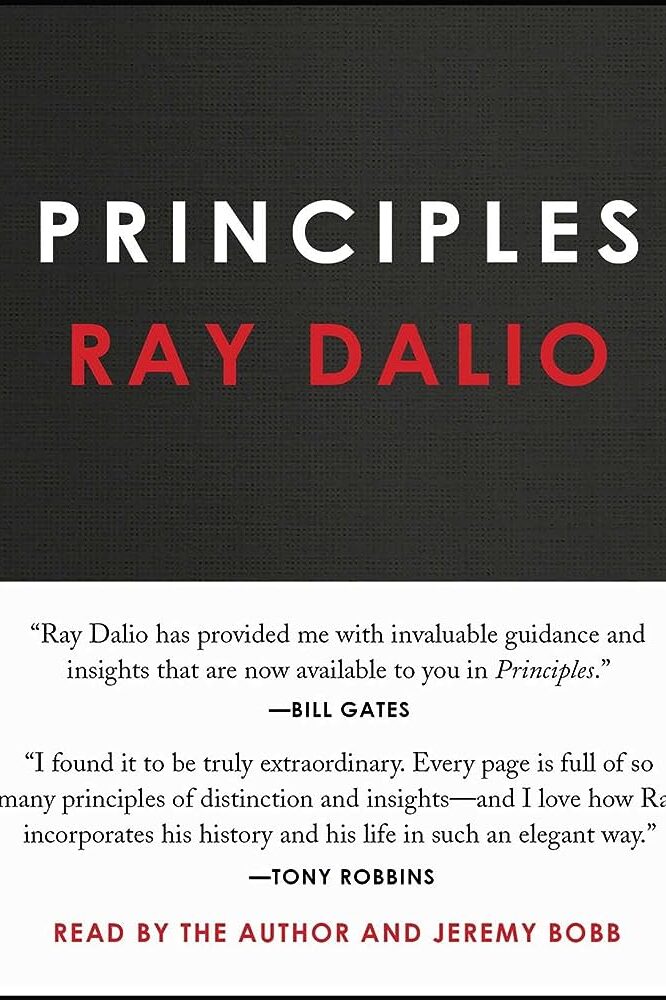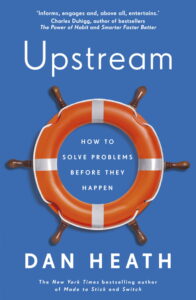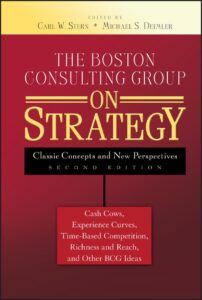Charting Your Path: Navigating College, Careers, and Beyond
"The book delves into effective decision-making, organizational growth, and the importance of diversification in investments, drawing from real-world events like the European debt crisis."
Subjects: Business Management, investing
In today’s fast-paced world, where decisions can make or break an organization, it’s crucial to have a guide that not only provides insights but also actionable steps to ensure success. The book titled “Principles by Ray Dalio” is a masterclass in understanding the intricacies of decision-making, organizational culture, and the importance of diversification in investments.
“A dot is just a dot; what matters is how they add up.”
This quote encapsulates the essence of the book, emphasizing the importance of looking at the bigger picture and understanding how individual actions and decisions contribute to the overall success of an organization.
Principles delves deep into the concept of evaluating individual performance. It suggests that while a single event can have multiple interpretations, a pattern of behavior can provide significant insights into root causes. This perspective is crucial in today’s corporate world, where quick judgments can often lead to misinterpretations. The book’s emphasis on using tools like performance surveys, metrics, and formal reviews to document performance is a testament to its forward-thinking approach.
Drawing from real-life examples, the book highlights the European debt crisis of 2012. It sheds light on the complexities of decision-making at a macro level and how believability-weighted decision-making played a pivotal role in navigating the crisis. This example serves as a testament to the book’s practical applicability, making it not just a theoretical guide but a manual rooted in real-world challenges.
Another intriguing section of the book is its exploration of organizational culture. It states:
“An organization is a machine consisting of two major parts: culture and people.”
This perspective is a refreshing take on the age-old debate about which is more critical – people or culture. By suggesting that both are equally important and influence each other, the book provides a balanced view that can guide leaders in building robust organizations.
The book also provides insights into the world of investments. It introduces the concept of the “Holy Grail of Investing,” emphasizing the importance of diversification. The book suggests that with 15 to 20 good, uncorrelated return streams, one can significantly reduce risks without compromising on expected returns. This advice is golden for anyone looking to make sound investments.
Furthermore, the book’s exploration of Bridgewater’s journey, from its initial days to its evolution into a top-performing U.S. bond manager, provides readers with a roadmap of perseverance, innovation, and strategic decision-making.
Major Insights from the book:
1. **Strategic Investment Decisions**: The book highlights the importance of strategic investment decisions, particularly during times of economic uncertainty. It discusses how portfolios were balanced to ensure considerable upside with limited downside, emphasizing the need for a backup plan in case of errors in judgment.
2. **Engagement with Policymakers**: It reveals interactions with policymakers during critical economic periods. Notably, meetings with Tim Geithner and White House officials are mentioned, where the author presented his economic views and predictions.
3. **Navigating Economic Crises**: The book covers strategies for navigating economic crises, such as the 2008 debt crisis. It details how the author and his team anticipated market movements and avoided significant losses, achieving notable success for their clients.
4. **Development of Investment Products**: Insights into the development of innovative investment products and strategies are shared. This includes work on U.S. dollar futures contracts, CRB futures contracts, and other pioneering financial instruments.
5. **Global Economic Exposure**: The book touches upon global economic exposure, including experiences in China and interactions with international entities, providing a broader perspective on economic and market movements.
6. **Investment Research and Systemization**: There’s a focus on investment research and the systemization of decision-making processes. The incorporation of new technologies and hiring of skilled individuals for investment research is highlighted.
7. **Evolution of Financial Models**: The book discusses the evolution of financial models and strategies, such as discovering inflation-indexed bonds, and the impact of these innovations on the investment landscape.
8. **Organizational Challenges and Leadership**: It also delves into organizational challenges, leadership transitions, and the importance of adapting to changing business environments.
9. **Investment Principles and Performance Metrics**: The book emphasizes the significance of having clear investment principles and performance metrics to assess and improve productivity.
In conclusion, Principles by Ray Dalio is not just a book; it’s a treasure trove of wisdom. It seamlessly blends theoretical knowledge with real-life examples, making it a must-read for leaders, decision-makers, and anyone looking to understand the nuances of organizational growth and effective decision-making. Whether you’re an entrepreneur at the start of your journey or a seasoned professional, this book promises to offer insights that can propel you towards success.




